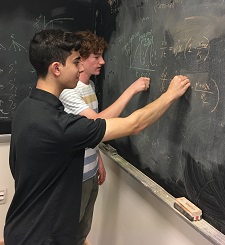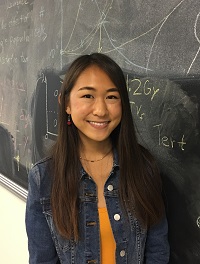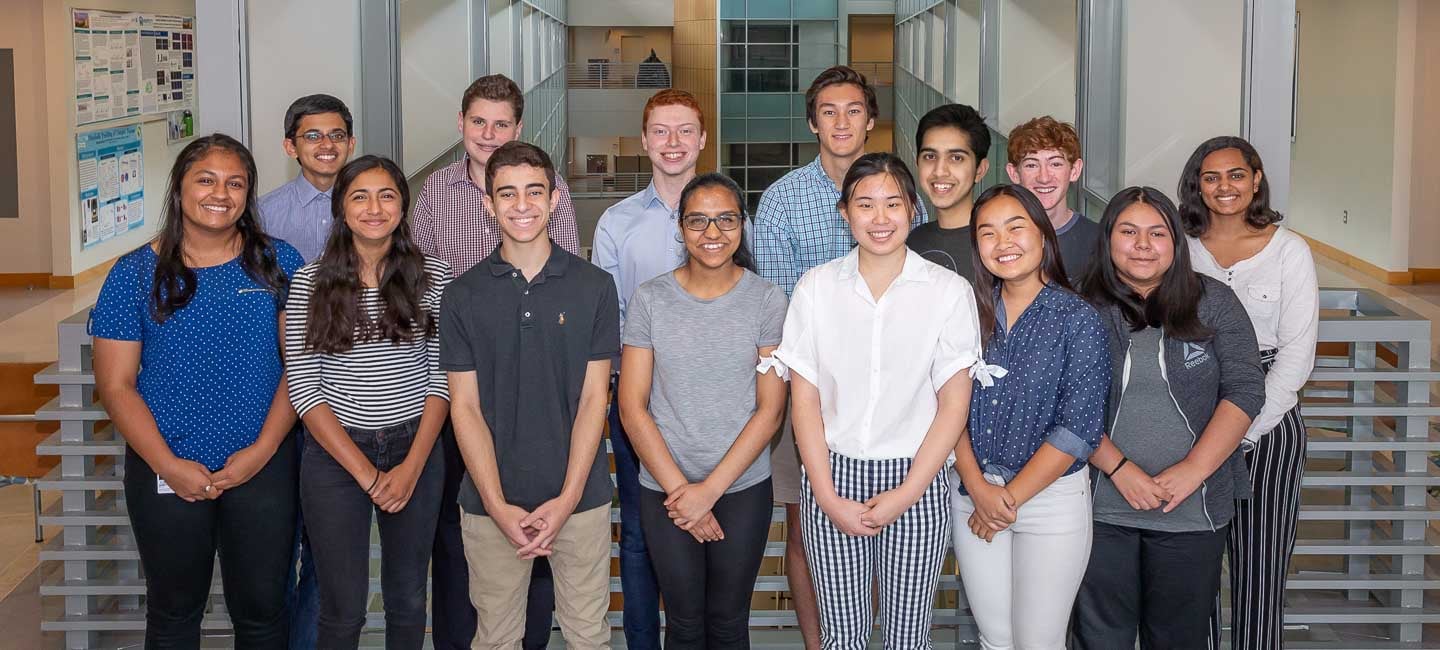High School Students Get HIP to Cancer Research at Moffitt
For Blake Bridge, this summer is unlike any other. Instead of going on vacations and enjoying a break from school work, Bridge chose to dedicate his summer to mathematics and how it applies to cancer research and treatments.
Bridge is one of 14 high school students who participated in the High School Internship Program for Integrated Mathematical Oncology (HIP-IMO) at Moffitt this year. They gained exposure to Moffitt’s Integrated Mathematical Oncology Department, where an integrated approach of theory and experiments is used to better understand, predict and treat cancer.
Started in 2015, the HIP-IMO program has grown tremendously and attracts applicants from around the country. In 2018, every participating student received an award made possible by a gift from the Richard O. Jacobson Foundation. The stipend enables students from various socio-economic backgrounds and from across the United States to attend, making the HIP-IMO program not only competitive with - but even superior to - other high school research programs.
"The HIP-IMO program is a unique training program that combines elements of peer-to-peer learning as well as mentor-guided research projects to bestow students with lifelong skills and prepare them for interdisciplinary cancer research careers," said Heiko Enderling, Ph.D., HIP-IMO program director. "HIP-IMO does not only provide valuable experiences to high school students, it also helps cancer researchers learn how to explain their work to students that don't have an advanced degree. Participating mentors gain as much insights and new expertise from the program as the student interns."
 During the program, Bridge, who now calls himself a HIPster, worked with his mentors to research new treatments for Chronic MyeloMonocytic Leukemia (CMML), a type of blood cancer that starts in the stem cells in bone marrow and eventually invades the blood. CMML generally affects older adults and occurs in four out of every million people in the United States, or about 2,000 patients annually.
During the program, Bridge, who now calls himself a HIPster, worked with his mentors to research new treatments for Chronic MyeloMonocytic Leukemia (CMML), a type of blood cancer that starts in the stem cells in bone marrow and eventually invades the blood. CMML generally affects older adults and occurs in four out of every million people in the United States, or about 2,000 patients annually.
Bridge worked with the lab of hematologist Dr. Eric Padron to determine if introducing genetically engineered CMML cells into the body would outcompete the original CMML population and induce cell death, allowing for treatment with common leukemia drugs.
"I have learned many things from the HIP-IMO program, spanning from how to code to understanding differential equations and learning how to apply for a patent," said Bridge. "Despite seeming to be somewhat of a math only program, the program has taught me a plethora of skills in many different fields."
Other HIPsters would agree with him.
"I've learned how mathematics can be applied to biology through coding and modeling, which I had never had the opportunity to explore at school,”"said Daniel Newton, a HIPster from California. "I would recommend it to other high school students because it would give them a glimpse at what it's like to be a research scientist while also allowing them to help make a contribution to the field in an ongoing project."

HIP-IMO is more than just a summer program. It has inspired the students to continue their passions with research and students like Susan Zhou have even returned to Moffitt to conduct further research on their study.
Zhou came to Moffitt from California for the first time in 2016. Since then, she has returned to the IMO department every summer to continue her work on the formation and function of lymph node-like structures that form at or around tumor sites. Zhou just graduated from high school and will start college this fall at Columbia University.
"I come back because of the people here and I like working with everyone in the labs and the department," said Zhou. "Everyone is supportive and I still keep in touch with the HIPsters. You have the chance to talk to many brilliant scientists about the projects and research and I have learned so much from the conversations. For example, we can be discussing our research and someone could mention a completely new perspective that inspires you to look at the issue under a new lens. Rather than following a worn path, we are given the opportunity to try different approaches that may or may not work."
"Returning students attest to the success of the program," said Enderling. "Seeing students so interested in continuing their projects and extending their research into new areas for years to come after their HIP-IMO experience is truly rewarding. We hope to plant a research seed in our students, and especially with returning students we see them harvest the fruits of their hard work and grow and mature into interdisciplinary scientists. "
You can learn more about the HIP-IMO program here.



